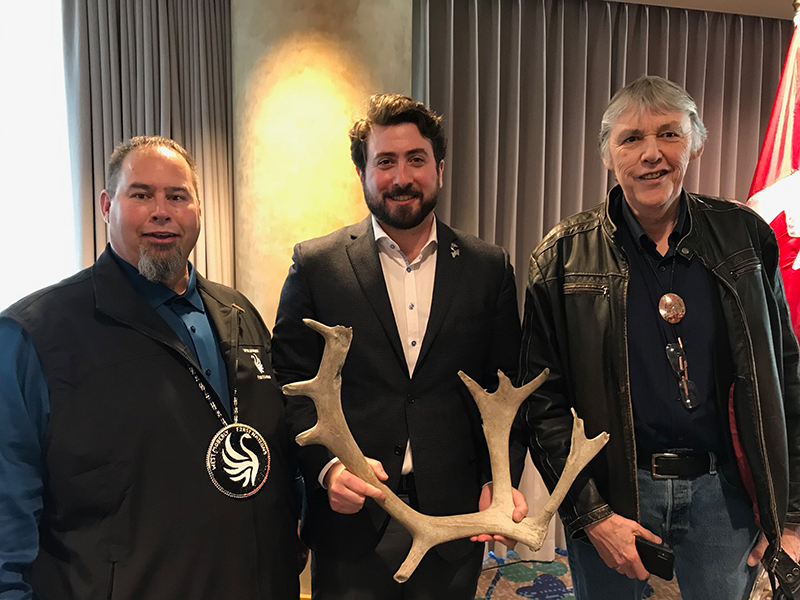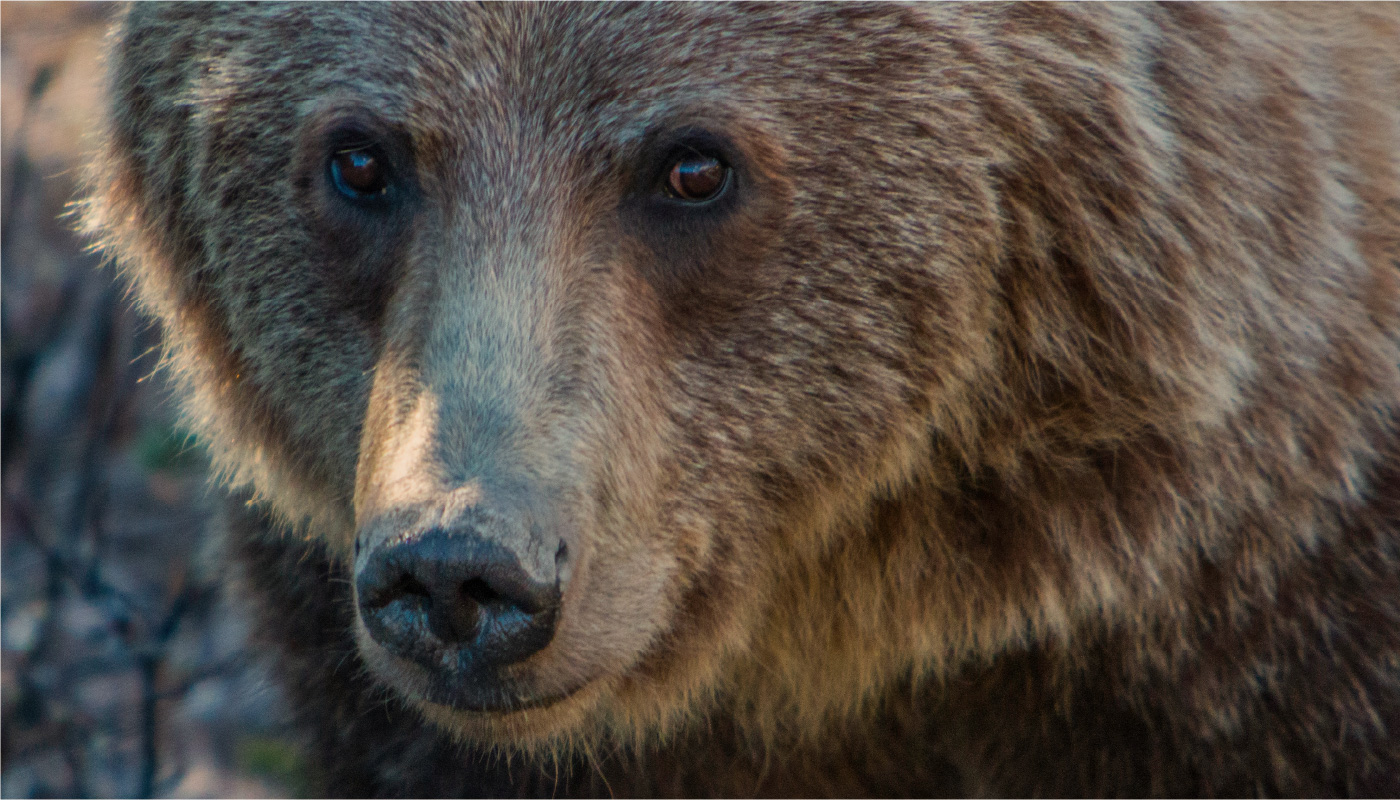Your support helped initiate an important hopeful moment for these animals
While hiking with friends in northern British Columbia’s Peace Region in 2017, Tim Burkhart approached an alpine lakeshore and was stunned by what he saw: an antler that once belonged to a caribou from the Burnt Pine herd.
This herd had been extirpated in 2013, one of several herds in B.C. to fall victim to rampant human disturbance.
“Something called me to borrow this antler from the land. It had a story to tell about how mountain caribou are fighting for survival,” says Tim Burkhart, Y2Y program manager.

The antler accompanied Tim through B.C. as he worked with Indigenous and non-Indigenous partners to communicate the urgent need to protect caribou habitat in the Peace.
“This antler was once part of an animal that is now a ghost, but their story remains important,” Tim would say in his presentations to audiences across the province.
Now a new protected area brings hope for caribou in the Peace. In February 2020, West Moberly and Saulteau First Nations, B.C. and Canada signed a historic partnership agreement, protecting vital caribou habitat and enacting a new Indigenous protected area.

This is the third Indigenous protected area announced in the Yellowstone to Yukon region in the last six months — joining Yukon’s Peel watershed and Qat’muk in southeast B.C. — and the first new park in the Peace since 2001.
In the year leading up to the announcement, the First Nations endured harsh opposition and racism, prompting the inclusion in the final agreement of a commitment from B.C. to review and report on the matter.
During this same period, Y2Y and allies helped organize thousands of letters of support to various governments and thanks to the Chiefs.
Your support was paramount in advancing this agreement and uplifting our partners when it was needed most. Your gift of courage is helping save a species on the brink of extinction.
“Throughout these adversities, numerous people including West Moberly’s Chief Willson and Saulteau’s Chief Cameron have echoed that encouragement from Y2Y and its supporters helped boost morale when the going got tough,” says Tim.
Creating the conditions that allow people to share space with wildlife isn’t always easy, but it’s vital. In Chief Willson’s words: “The caribou were there for us, now we need to be here for them.”

The antler, held aloft by Chief Willson at the agreement signing, has become a symbol of perseverance and bravery. Now, it will be returned to the land ceremoniously.
“It’s time the antler reintegrates into the ecosystem where one day caribou may return. We must move forward with courage for the caribou that are still here,” says Tim.
We asked you to stand up for caribou, and you have stood strong. Please thank West Moberly and Saulteau First Nations, B.C. and Canada for taking this massive step to save the endangered southern mountain caribou as we continue our support for advancing from agreement to action.


